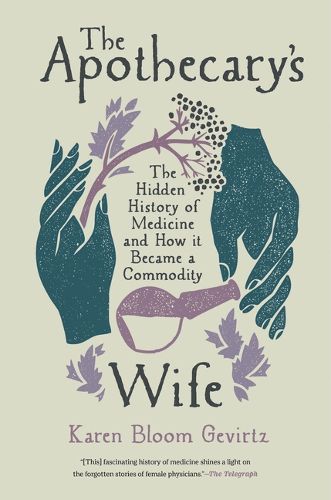Readings Newsletter
Become a Readings Member to make your shopping experience even easier.
Sign in or sign up for free!
You’re not far away from qualifying for FREE standard shipping within Australia
You’ve qualified for FREE standard shipping within Australia
The cart is loading…






"A lively medical, scientific, and economic history."--Kirkus Reviews (Starred Review) Best Nonfiction Books of 2024, Kirkus Reviews "A timely reminder that the current greed-based healthcare system is a relatively recent man-made scheme."--Forbes
A groundbreaking genealogy of for-profit healthcare and an urgent reminder that centering women's history offers vital opportunities for shaping the future.
The running joke in Europe for centuries was that anyone in a hurry to die should call the doctor. As far back as ancient Greece, physicians were notorious for administering painful and often fatal treatments--and charging for the privilege. For the most effective treatment, the ill and injured went to the women in their lives. This system lasted hundreds of years. It was gone in less than a century.
Contrary to the familiar story, medication did not improve during the Scientific Revolution. Yet somehow, between 1650 and 1740, the domestic female and the physician switched places in the cultural consciousness: she became the ineffective, potentially dangerous quack, he the knowledgeable, trustworthy expert. The professionals normalized the idea of paying them for what people already got at home without charge, laying the foundation for Big Pharma and today's global for-profit medication system. A revelatory history of medicine, The Apothecary's Wife challenges the myths of the triumph of science and instead uncovers the fascinating truth. Drawing on a vast body of archival material, Karen Bloom Gevirtz depicts the extraordinary cast of characters who brought about this transformation. She also explores domestic medicine's values in responses to modern health crises, such as the eradication of smallpox, and what benefits we can learn from these events.
$9.00 standard shipping within Australia
FREE standard shipping within Australia for orders over $100.00
Express & International shipping calculated at checkout
Stock availability can be subject to change without notice. We recommend calling the shop or contacting our online team to check availability of low stock items. Please see our Shopping Online page for more details.
"A lively medical, scientific, and economic history."--Kirkus Reviews (Starred Review) Best Nonfiction Books of 2024, Kirkus Reviews "A timely reminder that the current greed-based healthcare system is a relatively recent man-made scheme."--Forbes
A groundbreaking genealogy of for-profit healthcare and an urgent reminder that centering women's history offers vital opportunities for shaping the future.
The running joke in Europe for centuries was that anyone in a hurry to die should call the doctor. As far back as ancient Greece, physicians were notorious for administering painful and often fatal treatments--and charging for the privilege. For the most effective treatment, the ill and injured went to the women in their lives. This system lasted hundreds of years. It was gone in less than a century.
Contrary to the familiar story, medication did not improve during the Scientific Revolution. Yet somehow, between 1650 and 1740, the domestic female and the physician switched places in the cultural consciousness: she became the ineffective, potentially dangerous quack, he the knowledgeable, trustworthy expert. The professionals normalized the idea of paying them for what people already got at home without charge, laying the foundation for Big Pharma and today's global for-profit medication system. A revelatory history of medicine, The Apothecary's Wife challenges the myths of the triumph of science and instead uncovers the fascinating truth. Drawing on a vast body of archival material, Karen Bloom Gevirtz depicts the extraordinary cast of characters who brought about this transformation. She also explores domestic medicine's values in responses to modern health crises, such as the eradication of smallpox, and what benefits we can learn from these events.